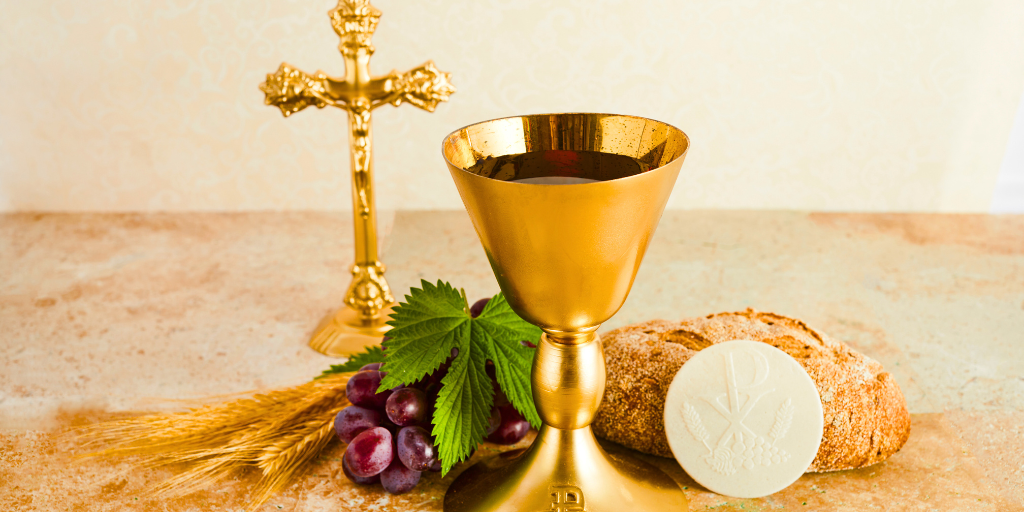
Julie Storr shares a reflection on the Collect for the Feast of the Most Holy Body and Blood of Christ.
Have you ever thought about the words that end in the letters f, u, and l? Examples of “ful” words would be that an armful means you can’t carry any more because your arm is full. Beautiful means someone or something is full of beauty. When we say that something is awful, our first thought might be something that is disagreeable, but it also means that something is full of awe.
In the Collect for the Feast of the Most Holy Body and Blood of Christ, we find a wonderful Sacrament, a Sacrament that is marvelous and astonishing, full of wonder: the memorial of Christ’s Passion.
O God, who in this wonderful Sacrament have left us a memorial of your Passion, grant us, we pray, so to revere the sacred mysteries of your Body and Blood that we may always experience in ourselves the fruits of your redemption. Who live and reign with God the Father in the unity of the Holy Spirit, God, for ever and ever.
As I meditated on this prayer, I realized that to revere the sacred mysteries of the Body and Blood of Jesus, and to experience the fruits of our redemption in ourselves, we need to understand what memorial is.
In the Eucharistic Prayer of the Mass, we hear the words of Jesus at the Last Supper, “Then he took the bread, said the blessing, broke it, and gave it to them, saying, This is my body, which will be given for you; do this in memory of me.’” (Luke 22:19)
The word memory is translated from the Greek word anamnesis. This memory, or remembrance, is not just recalling an event. It is deeper than just remembering. This remembrance contains the reality that it signifies.
We recently spent some time in Rome with our family. Reminiscing and looking at our pictures helps to remember the great time we had, but it doesn’t take us back to Rome. However, when we celebrate the Sacrament of the Eucharist in memory of Jesus, we are brought back to the Cross and the Resurrection.
The Catechism of the Catholic Church teaches, “The sacrifice of Christ and the sacrifice of the Eucharist are one single sacrifice: ‘The victim is one and the same: the same now offers through the ministry of priests, who then offered himself on the cross…’” (CCC 1367, quoting the Council of Trent).
Reliving the Sacrifice of the Mass
It’s not a new concept, as Jewish history is carried down through the generations when they “do this in memory.” Every time the Jewish people celebrate a Seder meal, they relive the Passover. They actually enter into the night when the Israelites were set free from the slavery of Egypt. When we celebrate the Sacrament of the Eucharist, we relive the sacrifice of the Passover Lamb, Jesus, on the cross.
As we revere, or adore, this wonderful mystery of the Body and Blood of Jesus, our thoughts and mind are focused on Jesus and not ourselves and we are open to receive all of the fruits, or the results, of the redemption that Jesus gave to us.
Going to Mass should not be a just habit or a drudgery. It is a place where the deepest desires of the heart can be fulfilled because it is where Jesus is.

Copyright 2024 Julie Storr
Images: Canva
About the Author

Julie Storr
Julie Storr surprised herself when she went from “never ever going to be Catholic” to a lover of the lectionary. Her thirst for the Faith is never quenched and she is always surprised at the depth of the relationship with Christ that one can find in the Catholic Church. She and her husband live in Pocahontas, Iowa. Visit her website at LectioTheLiturgy.com.


.png?width=1806&height=731&name=CatholicMom_hcfm_logo1_pos_871c_2728c%20(002).png)
Comments